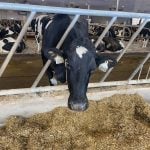New research from University of Guelph shows honeybee deaths went up as antibiotic usage went down following Canada’s adoption of tighter rules, part of the effort against antimicrobial resistance.


Canada tightened farmer access to livestock antibiotics, honeybees included, in 2018; new research suggests that beekeepers may be losing more bees because of it

Antibiotic from Merck Animal Health treats infections caused by bacteria sensitive to oxytetracycline in cattle, swine and sheep

It’s great that countries like Canada have a plan, but that’s not enough against a global threat


Beef 911: There are several things you should do regularly to ensure you’re using products properly

Horse Health: How the ‘new’ veterinary oversight affects horse ownership


An FAO official says there’s a need for both better education and greater enforcement